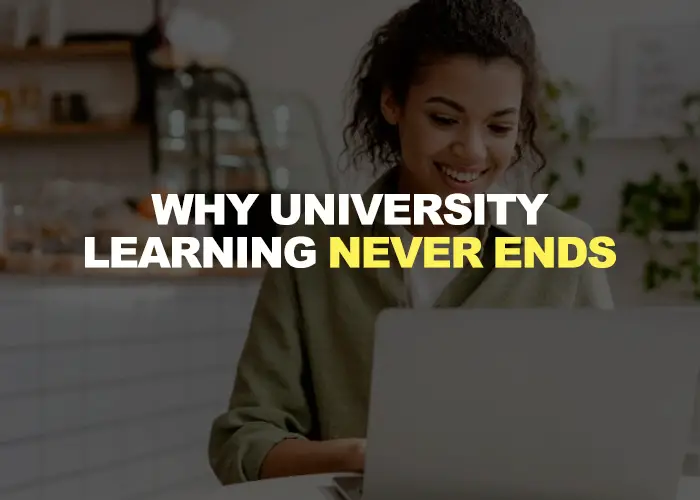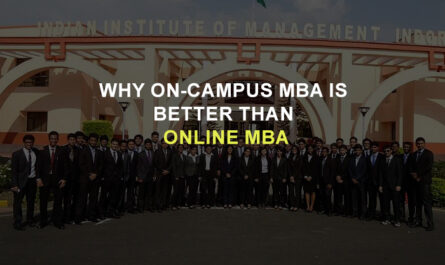In today’s fast-paced world, gaining a university degree is often seen as a major milestone. But the truth is, earning a degree is not the final destination — it’s just the beginning. University learning is a continuous journey, one that extends far beyond the classroom walls and traditional textbooks. This ongoing pursuit of knowledge is essential for personal growth, professional success, and adapting to an ever-evolving global society.
Let’s dive deep into why university learning is a lifelong adventure and how it shapes every aspect of our lives.
The Evolution of Learning in the Modern World

Decades ago, completing a university education meant you were equipped with all the knowledge you needed for a lifetime. Today, however, industries are changing at lightning speed. New technologies, global challenges, and evolving career paths require individuals to update their skills and knowledge continuously.
Universities are no longer just institutions that deliver a one-time educational package; they are hubs of lifelong learning. The idea that “learning ends with a diploma” has become outdated. Instead, universities encourage alumni to return, take advanced courses, pursue certifications, and stay engaged with current trends.
Key Reasons Why University Learning Never Truly Ends
| Reason | Explanation |
|---|---|
| Rapid Technological Changes | New tools, platforms, and innovations emerge daily, requiring ongoing education. |
| Evolving Career Paths | Careers today often involve multiple transitions and specializations over time. |
| Globalization | A connected world demands knowledge of diverse cultures, markets, and industries. |
| Research and Development | Constant advancements in science and technology demand continuous updates in education. |
| Personal Growth | Lifelong learning nurtures critical thinking, creativity, and adaptability. |
As the table shows, several dynamic factors drive the need for continued learning well after graduation.
The Role of Universities in Lifelong Learning
Universities play a pivotal role in fostering a culture of continuous learning. They offer opportunities such as:
- Postgraduate Degrees: Master’s programs, doctorates, and specialized diplomas.
- Professional Certifications: Short courses tailored to specific industries.
- Workshops and Seminars: Regular events to discuss new ideas, research, and developments.
- Alumni Networks: Platforms where graduates can exchange knowledge and collaborate on new ventures.
By providing these resources, universities ensure that their students remain equipped for future challenges and opportunities.
How University Learning Shapes Career Success
In the professional world, staying relevant is key. Employers increasingly seek individuals who demonstrate a commitment to ongoing education and skill development. Whether it’s mastering a new software tool, understanding global market shifts, or leading diverse teams, professionals who engage in lifelong learning have a competitive edge.
Key Career Benefits of Continuous University Learning:
- Better Job Prospects: Updated skills make you more marketable.
- Higher Salaries: Specialized knowledge often leads to better compensation.
- Leadership Opportunities: Ongoing education nurtures critical leadership skills.
- Networking Advantages: Connecting with academics and peers opens doors to new collaborations.
The Personal Rewards of Lifelong University Learning
Beyond professional success, continuous learning has profound personal benefits. It keeps the mind sharp, fosters curiosity, and promotes a sense of accomplishment. Many learners find that going back to study rekindles their passion for a subject or opens new avenues of exploration they hadn’t considered earlier.
How Continuous Learning Enhances Personal Growth
- Boosts Confidence: Achieving new milestones strengthens self-esteem.
- Encourages Open-Mindedness: Exposure to new ideas broadens perspectives.
- Fosters Adaptability: Learning equips individuals to navigate life’s inevitable changes.
- Improves Mental Health: Pursuing passions and learning new things contribute to emotional well-being.
Embracing Digital Learning Platforms
The rise of online education has made lifelong university learning more accessible than ever. Today, anyone with an internet connection can enroll in a course from a top university, attend webinars, or even complete a full degree program online.
Popular Digital Learning Resources Offered by Universities
- Massive Open Online Courses (MOOCs): Platforms like Coursera, edX, and FutureLearn.
- Virtual Seminars and Webinars: Live interactive sessions with global experts.
- E-Libraries and Journals: Access to the latest research and academic publications.
- Online Certifications: Short programs offering specialized knowledge.
Digital learning has broken geographical barriers, allowing people from all walks of life to continue their education at their own pace and convenience.
How to Cultivate a Lifelong Learning Mindset
Lifelong learning is as much about attitude as it is about access to resources. To truly benefit, one must cultivate the right mindset.
Tips to Stay Committed to University Learning
- Stay Curious: Always ask questions and seek answers.
- Set Goals: Regularly identify areas where you want to grow.
- Join Learning Communities: Engage with groups that value education and growth.
- Celebrate Milestones: Recognize and reward your learning achievements.
- Adapt to Change: Embrace new technologies and methodologies without hesitation.
Universities can provide the tools, but it is the learner’s mindset that transforms those tools into tangible success and fulfillment.
Conclusion: The Journey Never Ends
In the sea of knowledge, university learning is the ship that carries us through ever-changing tides. A diploma might symbolize the completion of a chapter, but not the story. Lifelong university learning ensures that we remain agile, informed, and ready to contribute meaningfully to the world.
By continuing to learn, we not only enhance our careers but also enrich our lives. The real question is not, “When will I finish learning?” but rather, “What will I discover next?“




